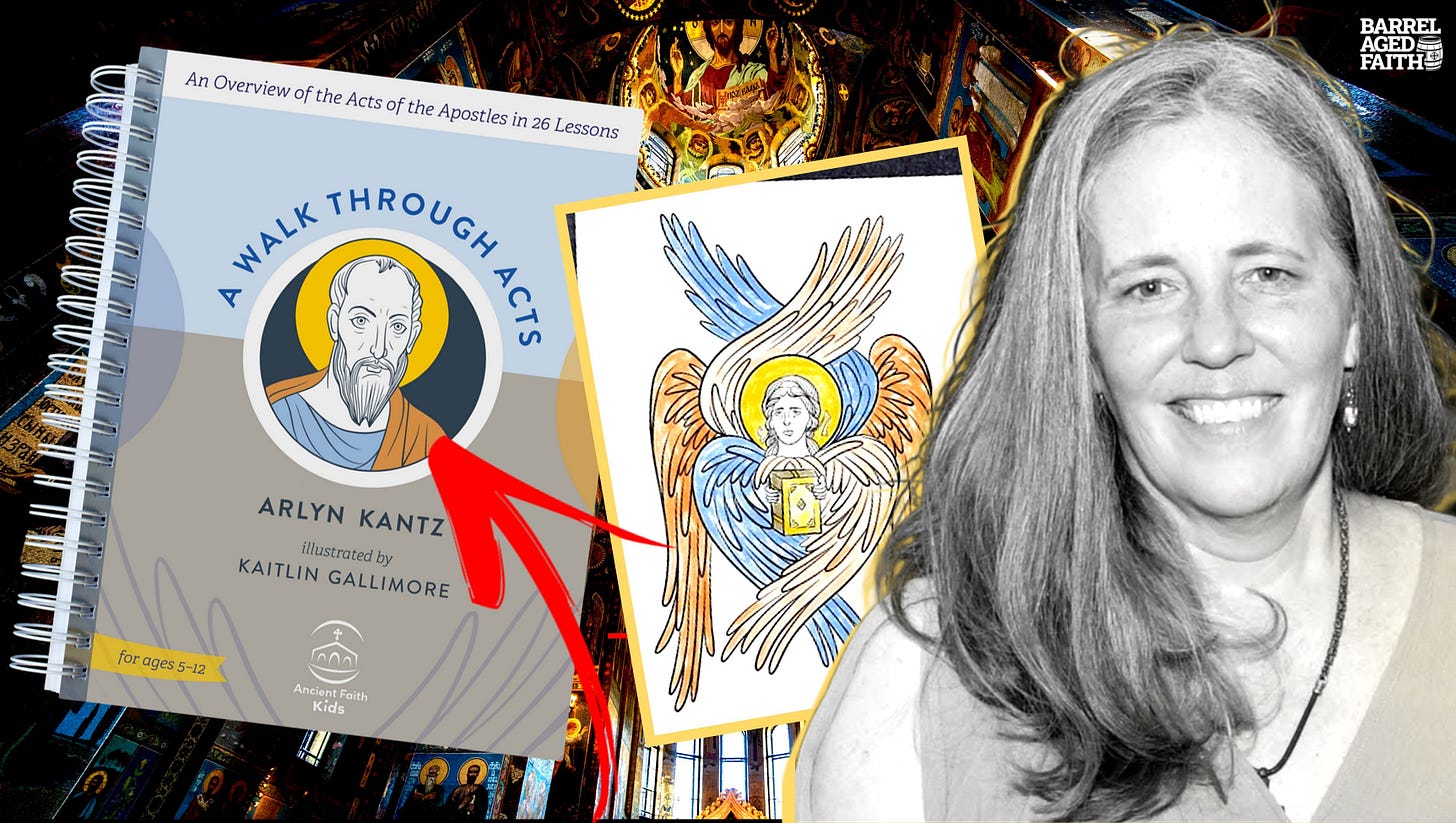Culture Wars or The Cross?
Why 'the Way of the Martyrs' Is the Only Path for True Cultural Renewal
The first night I stayed up late for an election was the year 2000 when George W. Bush ran against Al Gore. It was a strange one, because Florida ended up in the Supreme court. Tuesday night, I was hoping we wouldn’t end up back in the Supreme court, and of course, we did not. There was a clear-cut winner. Many cultural conservatives are very excited about the future as Trump-Vance seek to ‘save America.’
However, we should all be reminded that there are no shortcuts when it comes to true cultural renewal, because this great gift can only come from Christ and is packaged in the form (or cruciform) of martyrdom. “Pick up your cross daily and follow Me” (Luke 9:23).
This was a lesson that took me a while to learn during the President George W. Bush era. As a devout Evangelical, I thought there could be some kind of beautiful harmony between the President and the Pulpit. I soon became disillusioned with this reality as many of my peers were deployed in Afghanistan and Iraq and realized that you cannot defeat terrorism through mere weaponry. There is something deeper going on in human hearts.
I also noticed that many of my millennial friends were leaving the faith, because they found American-Evangelical-Cultural-Christianity to be a bit nauseating or at least, spiritually unhealthy. I nearly did the same thing late in high school as I considered embracing atheism or pondered going on an expedition through the ‘mystical’ spiritualities of the Far East such as Hinduism and Buddhism.
By college, my faith in Christ was reignited, but I found attempts to ‘save’ Christian civilization to be a waste of time. Although my views are a bit more nuanced today, I have maintained a general distaste for the Culture Wars and believe Christians would be better off planting deeper roots in the values of the Gospel such as Deep Discipleship, High Hospitality, Sacramental Worship, Liturgical Living, and the Great Commission. All of these values and practices (Orthopraxy) are rooted in becoming a self-gift to others, which eventually culminates into ‘true Christian culture.’ The Culture Wars simply cannot do this. They prize hostility over hospitality as well as self-preservation over self-sacrifice. (Just spend 5 minutes on twitter/x on many Christian platforms, and you will see what I mean).
My friend, Michael Warren Davis, wrote a book called ‘After Christendom’ where he argues that we must embrace the Great Commission over the Culture Wars if we want to see true cultural renewal. (See our full interview here). He writes,
“The ‘Culture War’ is the antithesis of the Great Commission. One calls us to fight to the death; the other, to lay down our lives. One tells us to fear our enemies; the other tells us to love them so they become our friends. One is based on the wisdom of man; the other, on the foolishness of God.”
He also adds:
“While Church and State often worked well together, they just as often . . . well, didn’t. As Philip Sherrard pointed out, ‘Christianity spread for three centuries not with the state, but in spite of it, not in conquest but in the catacombs.’”
The Way of Charlamagne or St. Boniface?
MWD then provides an example from church history to flush all of this out. He writes,
“In 772, Charlemagne implemented a policy of forcibly baptizing the Saxons. When they resisted, he sent his armies into Saxony with orders to burn their crops. This went on for years and years, with the Franks slowly starving the Germans for refusing to accept Christ.”
In contrast to Charlamagne, we have the example of St. Boniface. Davis continues:
“He famously cut down an oak tree that was believed to be sacred to the god Thor (or maybe Odin; the record isn’t clear) and used the wood to build a church… Boniface hated heathenry, but he loved the heathen. He knew that nothing mattered but the conversion of sinners. He also knew that nothing could convert sinners except the living God. He gave up everything he had for that mission, including his own life. But he used the proceeds to win Germany for Christ. That’s why Saint Boniface, not Charlemagne, is known as the “Apostle to the Germans.” The emperor put his trust in the Empire; the saint put his trust in God.”
It is the saints and martyrs and not the culture crusaders who actually end up producing authentic Christian culture at the end of the day.
Rebuilding w/ The Benedictines
In his most recent piece, author Robin Phillips pointed to my interview with Fr. Patrick Cardine where he explained the model of Benedictine monks in church history. Phillips writes,
“One of the things I found particularly helpful was Fr. Patrick’s explanation about the Christian triumphalism of the Benedictines. He describes how the Benedictines helped build Christian culture… Each time the Danes destroyed their monasteries, schools and churches, they simply picked up the stones and started rebuilding… The Benedictine example of rebuilding again and again gives a hopeful alternative, but it’s not what people want to hear right now. It offers Christian triumphalism without Christian nationalism, an optimistic eschatology without the materialism of postmillennialism, a hope for our civilization without predictions of short-term victory. Ultimately, it offers a strategy for cultural renewal that can work even in the face of—and sometimes precisely because of—martyrdom and apparent defeat.”
(See full interview below. It isn’t really about ‘trick or treating’ but rather how the martyrs and monks and ordinary Christian families transformed the world which is what All Saints Day & its Vigil, All Hallows’ Eve, is all about).
Authors Rod Dreher and Paul Kingsnorth both point to the way of the monks and martyrs as the ultimate source of cultural renewal. While Kingsnorth emphasizes a Wild Christianity led by prophetic saints living in the caves such as St. Anthony the Great (Egypt) or St. Kevin of Glendalough, Dreher points to whole communities who are embracing stability and liturgical living in the ‘Benedict Option.’ Both approaches can be complementary. Dreher believes so when he writes back in 2020:
“When I consider the way Paul Kingsnorth has chosen to live in the world — a world that is collapsing — I too see wisdom and maturity. I see that action really is not always more effective than inaction. I see a form of the Benedict Option — that is, what I am trying to do with the Benedict Option: create resilient communities within which faith, hope, and love can survive the unfolding collapse. Communities and ways of life in which we can experience, to borrow Kingsnorth’s words, real, felt attachment to any small part of the Body of Christ.”
For me, Dr. Timothy Patitsas gives one of the most complete pictures of how the Divine Liturgy leads to the renewal of the Polis (City) and civilization when he writes in The Beauty of Ethics:
"Holy Week: that entire week enfolds us into an encounter between Christ the King and his city, Jerusalem. This meeting then results in the founding of a new city--the New Jerusalem, the Church. Thus, Holy Week gives us all kinds of clues about how we can get along in ordinary human cities" (pg. 624).
He continues:
"All three of Byzantium's core civilizations thus 'died' in the mystery of Christ's death. But all three were then resurrected and transfigured in the Orthodox Christian Church. The Church thus showed its miraculous capacity to safeguard all of civilization when she purified these cultures of their destructive sides, and even brought them into harmony despite their mutual suspicion" (pg. 626).
Lastly, he writes,
"The task of integration requires that we combine the way of the heart with the way of the mind; the Orthodox Christians of Constantinople perfected this art. I say 'art,' but in fact it really is a gift of the Holy Spirit, wherever it happens. Outside of grace, there is only war." (pg. 644)
In other words, when the Liturgy of Holy Week (the liturgies of liturgies) is fully embraced as the true center of the city (and village), civilization will be gradually renewed and integrated into Christ. The people come and meet their King, and He in turn, gives them Himself in the Wedding Feast of the Lamb. This is the heart of true civilization and human existence.
There are all sorts of other ways to say this truth:
We were made to worship and so when we put God first and make our lives and schedules revolve around worship, everything falls into place.
Since Christ truly comes to us in every Divine Liturgy through the Eucharist, the altar must become the center of every city and nation upon the earth in order for civilization to be rightly renewed.
In the liturgy of Holy Week, we reenact not only the drama of salvation but also the drama of the Garden before the fall. Our King walks with us in the cool of the morning and evening.
For civilization to truly become Christian and reflect the New Adam to the world, it must be replenished daily with the Tree of Life, the fruit of immortality, which comes to us through contemplative prayer and the sacramental life, particularly in the Eucharist.
As we reflect on this latest election cycle, let us be reminded that the Culture Wars will not renew civilization at the end of the day. They may or may not give Christians some temporary breathing room to operate, but it can only truly happen by leading our families to Christ in the font and altar, and most importantly, by picking up our crosses and following Him daily.
Be entirely His,
Kyle
Recent Videos, Interviews & Upcoming Ones!
Last week, I interviewed Arlyn Kantz, author of “A Walk Through Acts.” If you have a love of Scripture, Catechesis, Evangelization or even George MacDonald, then you are going to love this video!
Today at 3pm EST, I will be interviewing Chris Kaspar, the Founder of Techless and the Wisephone, the ‘healthy’ smartphone (which I have been using for two years now). It’s going to be a fun conversation (and a very important one) so jump in live or watch it later.






My Gosh Kyle, Do you ever sleep ? ;) Even with 7 wonderful children. ;) Such energy and passion in this article loaded with so many references and great links. I can't wait to get my daily chores done, grab my pipe and sit down for an hour and re-read a lot of this. I will also be praying the rosary, especially for JD Vance and his family as he takes on his new responsibilities. Thanks for all that you do to help us keep energized about God's Call and the Faith. God Bless you and that wonderful family. Ellis